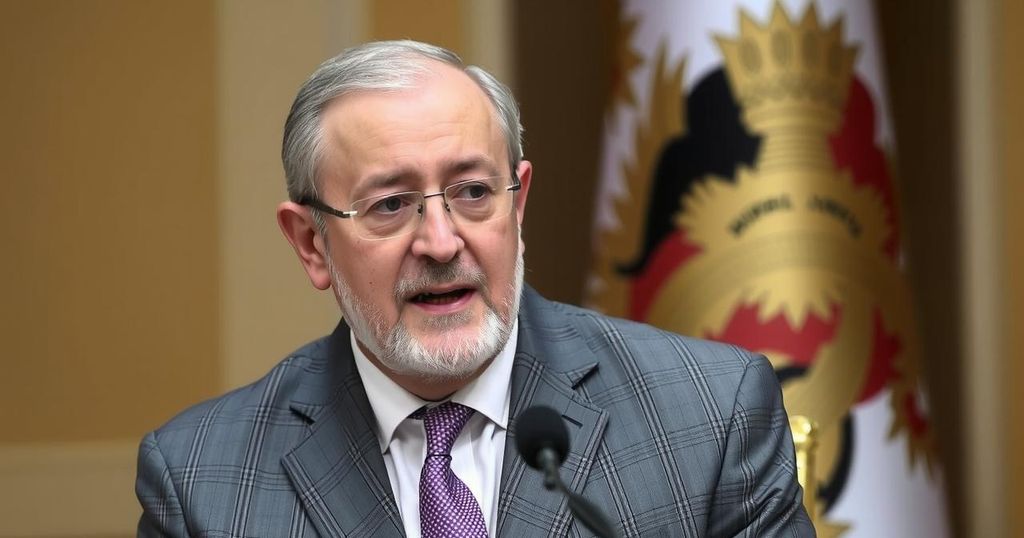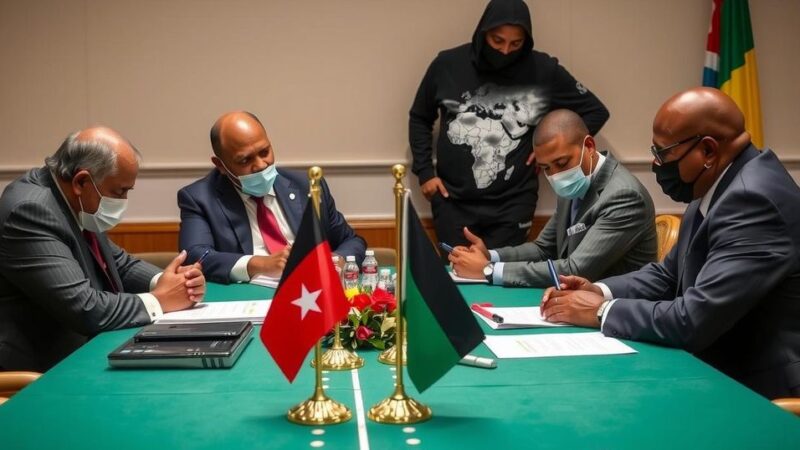Ahmad al-Sharaa, leader of HTS, estimates it may take up to four years to conduct elections in Syria, necessitating a new constitution and comprehensive population census. Following the ousting of President Assad, Al-Sharaa emphasizes the need for political dialogue among factions and efforts to rebuild the war-torn country, while also navigating regional and international military dynamics.
Ahmad al-Sharaa, the leader of Hayat Tahrir al-Sham (HTS), has indicated that it may take up to four years to conduct elections in Syria, emphasizing the necessity of drafting a new constitution. In an interview with Al-Arabiya, he projected a timeline of three years for constitution formulation, noting that valid elections require a comprehensive population census. This timeline follows a rapid insurgency that ousted President Bashar Assad and ended a prolonged civil conflict. Al-Sharaa highlighted the importance of political dialogue among various Syrian factions, as well as the reconstruction of the nation’s devastated infrastructure. He stated, “The chance we have today doesn’t come every five or 10 years.” Plans are underway for a dialogue session on March 1, intended to establish a transitional government and integrate HTS into a broader political framework.
Additionally, the region remains volatile, exemplified by a recent Israeli airstrike in the outskirts of Damascus that resulted in civilian casualties. The airstrike targeted a weapon depot associated with Assad’s forces, demonstrating Israel’s continued military involvement in Syria, which has persisted since the beginning of the civil war. Amidst these ongoing conflicts, Al-Sharaa expressed aspirations to maintain strategic relations with Russia while advocating for potential collaborations with the Kurdish-led Syrian Democratic Forces (SDF). These complexities underscore the challenges faced as Syria attempts to navigate its political landscape amid enduring tensions.
The statement made by Ahmad al-Sharaa regarding the potential timeline for elections in Syria comes in light of a significant political shift following the recent overthrow of President Bashar Assad. The country has experienced a civil war since 2011, leading to a fragmented political scenario and a need for a new foundational governance structure. The formation of a new constitution is seen as critical to ensuring legitimate elections, alongside essential demographic assessments through a comprehensive census. Al-Sharaa’s leadership of HTS positions him at a pivotal juncture in shaping Syria’s political future, with international dynamics, especially regarding Israel and Russia, also playing crucial roles in the country’s stability.
Ahmad al-Sharaa has articulated a vision for Syria’s political future that includes a structured timeline for elections and constitutional development. His remarks reflect the intricate interplay of local governance and international relations as Syria emerges from years of conflict. The necessity for political dialogue and infrastructure reconstruction underscores the extensive challenges that lie ahead. As various factions prepare for critical discussions in March, the path toward a unified and democratic Syria remains fraught with complexity.
Original Source: www.euronews.com







